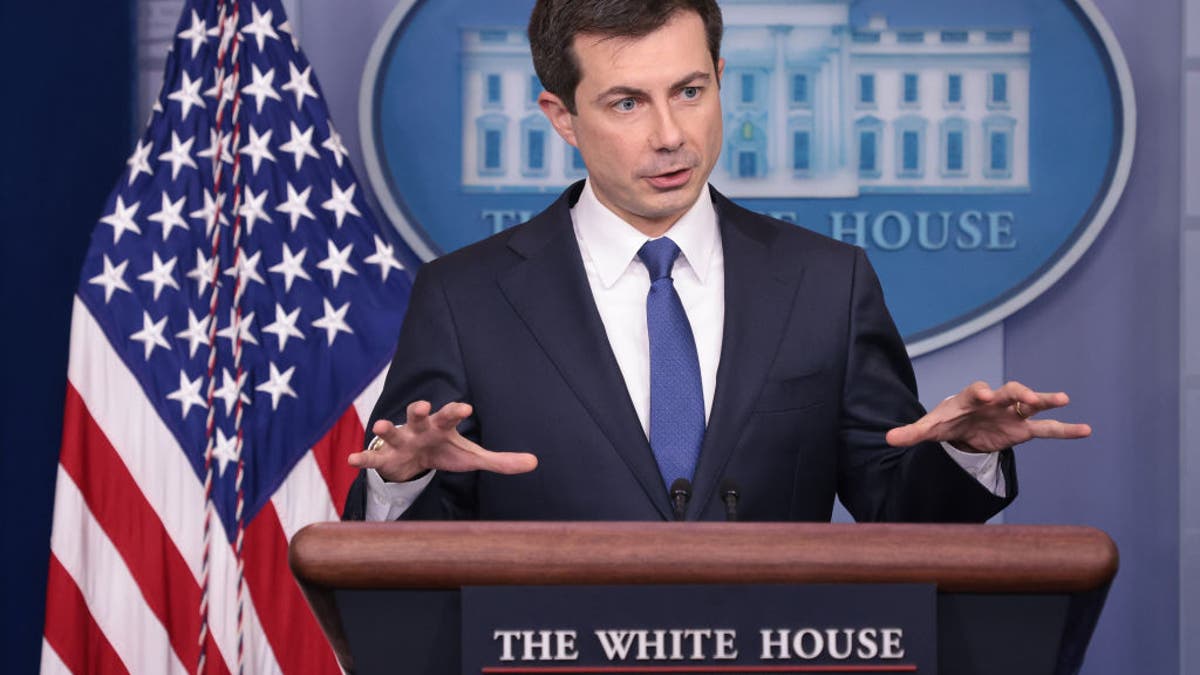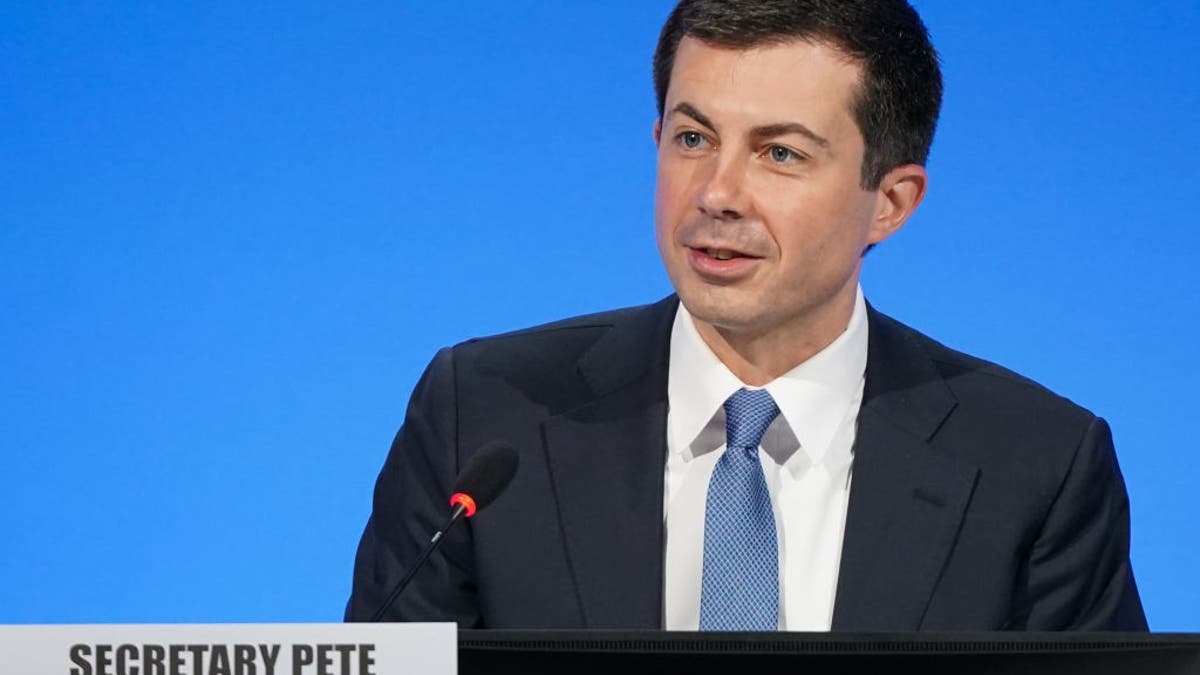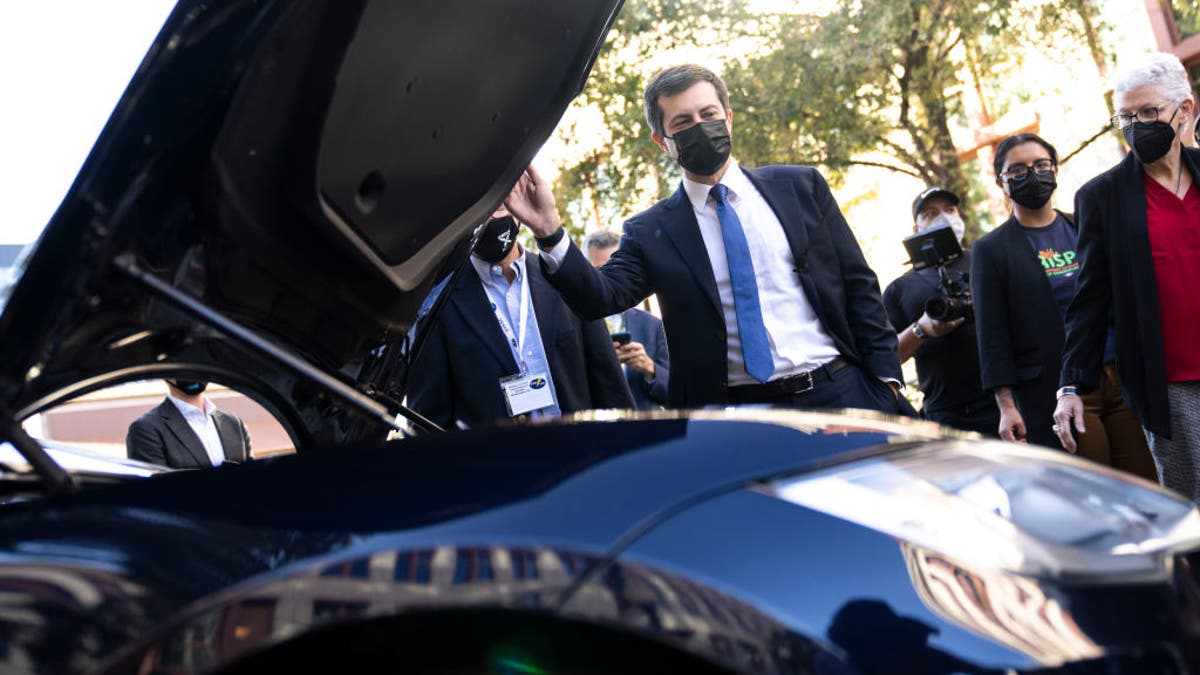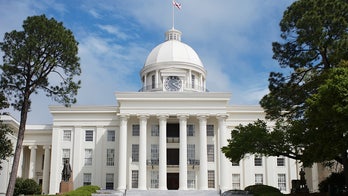Will Cain: Buttigieg’s racist roads comment has a kernel of truth, but avoids the big issues facing minorities
‘Fox & Friends Weekend’ co-host Will Cain discusses Transportation Secretary Pete Buttigieg’s comments about racism ‘built into roads,’ Biden’s poll numbers, and Kamala Harris’ trip to Europe
Transportation Secretary Pete Buttigieg on Sunday responded to criticism over his recent comments about racist bridges and highways, saying "the point is not to make America feel guilty" but to fix what he believes are injustices in the country’s infrastructure.
During an appearance on MSNBC’s "The Sunday Show," Buttigieg was asked to respond to critics who don’t believe his argument that some bridges and highways were built with racist intentions.

Transportation Secretary Pete Buttigieg during the daily briefing at the White House on Nov. 8, 2021. (Win McNamee/Getty Images)
"What we’re doing is we are reconnecting people who may have been disconnected or divided by discriminatory decisions in the past," the secretary responded. "That helps everybody. I don’t know why anybody would be against reconnecting people who have been divided by discriminatory decisions in the past.
"And again, the point is not to make America feel guilty," he continued. "The point is to make America better and more equitable and more effective in moving people to where they need to go. The point of transportation is to connect, so if a transportation was ever used to divide, we have a responsibility, a moral one but also a very practical one, to fix it."
Buttigieg raised eyebrows earlier this month after he talked about the bipartisan infrastructure bill addressing racism in highways during a White House press briefing.

Pete Buttigieg speaks during the U.N. climate conference in Glasgow, Scotland, on Nov. 10, 2021. (Ian Forsyth/Getty Images)
"I’m still surprised that some people were surprised when I pointed to the fact that if a highway was built for the purpose of dividing a White and a Black neighborhood, or if an underpass was constructed such that a bus carrying mostly Black and Puerto Rican kids to a beach, or that would have been in New York, was designed too low for it to pass by, that that obviously reflects racism that went into those design choices," Buttigieg said on Nov. 8.
Conservatives on social media immediately doubted the story, prompting The Washington Post’s resident fact-checker Glenn Kessler to come to Buttigieg’s defense, citing a narrow passage from Robert Caro’s Pulitzer-Prize winning book "The Power Broker," a biography of New York civic planner Robert Moses.
A Transportation Department official confirmed to Kessler that Buttigieg was indeed referring to Caro’s book.

Pete Buttigieg looks at a Tesla Model S during an electric vehicles event outside the Department of Transportation on Oct. 20, 2021 in Washington, D.C. (Drew Angerer/Getty Images)
CLICK HERE TO GET THE FOX NEWS APP
Kessler later admitted that his "knee jerked" and that experts have increasingly doubted the racist bridge story in Caro's book.
"Obviously this cannot be easily resolved," Kessler wrote. "Caro quotes one of Moses’ top aides as saying the height of the bridges was done for racist reasons, but increasingly that story has been questioned as not credible. Buttigieg should tailor his remarks to reflect what is historically unimpeachable – and we should be more careful to double-check on the latest views of historians. Even a Pulitzer Prize-winning book is not always the last word on a subject."





